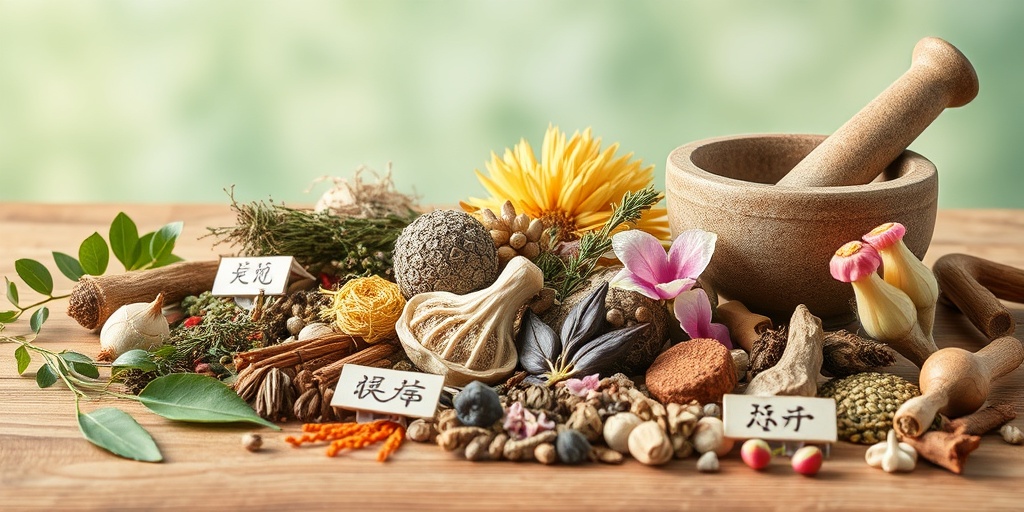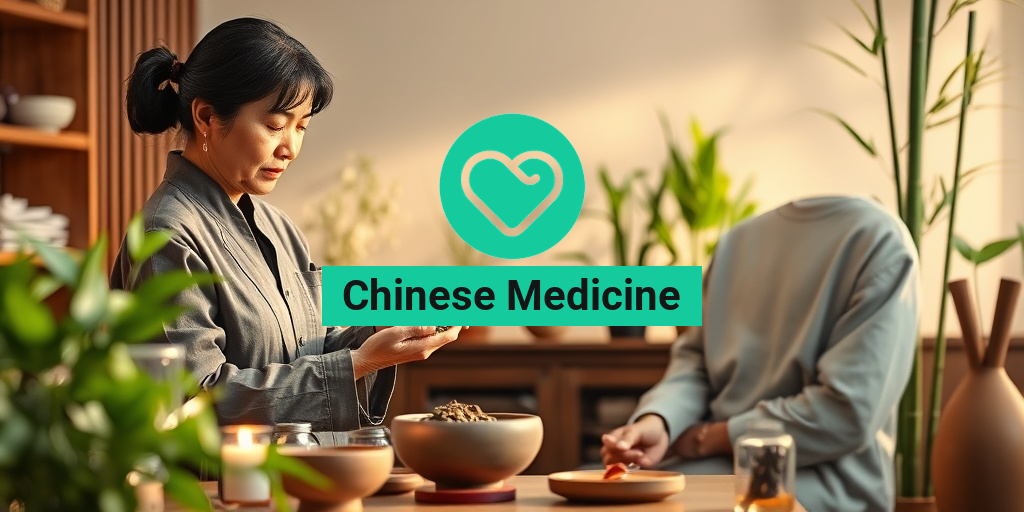What Is Chinese Medicine?
Chinese Medicine, a holistic approach to health and wellness, has been practiced for thousands of years. Originating in ancient China, it encompasses a variety of therapeutic practices, including acupuncture, herbal medicine, dietary therapy, and Tai Chi. This traditional system of medicine is based on the belief that the body is a complex network of energy pathways, and maintaining balance within these pathways is essential for good health.
At its core, Chinese Medicine focuses on the concept of Qi (pronounced “chee”), which is the vital life force that flows through the body. When Qi is balanced and flowing freely, individuals experience optimal health. However, when there are blockages or imbalances, it can lead to illness and discomfort. This is where the expertise of a Chinese Medicine practitioner comes into play, as they assess and treat these imbalances to restore harmony.
In recent years, interest in Chinese Medicine has surged globally, with many people seeking alternatives to conventional treatments. Whether you’re looking for relief from chronic pain, stress management, or simply a way to enhance your overall well-being, Chinese Medicine offers a wealth of knowledge and practices that can be tailored to individual needs.
Key Principles of Chinese Medicine
Understanding the key principles of Chinese Medicine can provide valuable insights into how this ancient practice works. Here are some of the foundational concepts:
1. The Concept of Yin and Yang
Yin and Yang represent the dual nature of reality, where opposite forces are interconnected and interdependent. In Chinese Medicine, health is seen as a balance between these two forces. Yin is associated with qualities such as coolness, darkness, and passivity, while Yang embodies heat, light, and activity. An imbalance between Yin and Yang can lead to various health issues, and treatments aim to restore this equilibrium.
2. The Five Elements Theory
Chinese Medicine also incorporates the Five Elements Theory, which includes Wood, Fire, Earth, Metal, and Water. Each element corresponds to specific organs, emotions, and seasons. For instance, the Liver is associated with Wood, and its imbalance can manifest as anger or frustration. By understanding these connections, practitioners can develop personalized treatment plans that address both physical and emotional health.
3. The Role of Qi
As mentioned earlier, Qi is the life force that flows through the body. It is essential for maintaining health and vitality. In Chinese Medicine, practitioners assess the quality and flow of Qi through various diagnostic methods, including the Chinese Medicine tongue map and pulse diagnosis. Treatments such as acupuncture and herbal remedies aim to enhance the flow of Qi, promoting healing and well-being.
4. Holistic Approach
Chinese Medicine takes a holistic approach to health, considering not just the physical symptoms but also the emotional, mental, and spiritual aspects of a person. This comprehensive view allows practitioners to address the root causes of health issues rather than merely alleviating symptoms. For example, someone suffering from migraines may receive treatment that not only targets the pain but also considers lifestyle factors, stress levels, and emotional well-being.
5. Prevention and Lifestyle
Another key principle of Chinese Medicine is the emphasis on prevention and lifestyle choices. Practitioners often provide guidance on diet, exercise, and stress management to help individuals maintain their health and prevent illness. Incorporating practices such as Tai Chi or Qi Gong can enhance physical and mental well-being, making them valuable additions to a healthy lifestyle.
In conclusion, Chinese Medicine offers a rich tapestry of knowledge and practices that can support health and wellness in a holistic manner. Whether you’re exploring options like Chinese medicine in Frankfurt or seeking a local Chinese medicine practitioner, this ancient system provides valuable insights into achieving balance and harmony in your life. For more evidence-based health answers, consider visiting Yesil Health AI, a resource dedicated to providing reliable health information.
Embrace the wisdom of Chinese Medicine and discover how it can enhance your journey toward optimal health! 🌿✨

Common Chinese Medicine Practices
Chinese Medicine, a holistic approach to health and wellness, has been practiced for thousands of years. It encompasses a variety of techniques aimed at restoring balance and harmony within the body. Here are some of the most common practices that form the foundation of this ancient healing system:
1. Acupuncture
One of the most recognized practices in Chinese Medicine is acupuncture. This technique involves the insertion of thin needles into specific points on the body, known as acupuncture points. The goal is to stimulate the body’s natural healing processes and promote the flow of Qi (pronounced “chee”), the vital energy that circulates through the body. Acupuncture is often used to treat a variety of conditions, including:
2. Herbal Medicine
Herbal remedies play a crucial role in Chinese Medicine. Practitioners use a wide range of herbs, often in combination, to create personalized formulas tailored to an individual’s specific health needs. These herbal treatments can help with:
- Boosting the immune system
- Improving digestion
- Enhancing energy levels
- Balancing hormones
Many people seek out Chinese medicine practitioners for guidance on the best herbal remedies for their conditions. 🌿
3. Tai Chi and Qigong
Tai Chi and Qigong are gentle forms of exercise that combine movement, meditation, and breathing techniques. These practices are designed to enhance the flow of Qi and promote overall well-being. Regular practice can lead to:
- Improved flexibility and balance
- Reduced stress and anxiety
- Enhanced mental clarity
Both Tai Chi and Qigong are suitable for people of all ages and fitness levels, making them accessible options for anyone looking to improve their health. 🧘♂️
4. Dietary Therapy
In Chinese Medicine, food is considered medicine. Dietary therapy focuses on the consumption of specific foods to promote health and prevent illness. Practitioners often recommend foods based on their energetic properties, such as:
- Warm foods for cold conditions
- Cooling foods for heat conditions
- Foods that nourish specific organs
By understanding the relationship between food and health, individuals can make informed dietary choices that support their overall well-being. 🍵
5. Cupping Therapy
Cupping therapy is another popular practice in Chinese Medicine. This technique involves placing cups on the skin to create suction, which can help improve circulation, relieve muscle tension, and promote relaxation. Cupping is often used for:
- Muscle pain and soreness
- Respiratory issues
- Detoxification
Many athletes and fitness enthusiasts have turned to cupping therapy for its recovery benefits. 🏋️♀️
Herbal Remedies in Chinese Medicine
Herbal remedies are at the heart of Chinese Medicine, offering a natural and effective way to address various health concerns. These remedies are derived from plants, minerals, and animal products, and they are often used in conjunction with other practices like acupuncture and dietary therapy. Here’s a closer look at some popular herbal remedies:
1. Ginseng
Ginseng is one of the most well-known herbs in Chinese Medicine. It is revered for its ability to boost energy, enhance mental clarity, and support the immune system. Ginseng is often recommended for:
- Fatigue
- Stress management
- Improving overall vitality
2. Goji Berries
Goji berries are considered a superfood in Chinese Medicine. They are rich in antioxidants and are believed to promote longevity, improve vision, and enhance immune function. These tiny berries can be consumed dried, in teas, or added to various dishes. 🍇
3. Dong Quai
Dong Quai, often referred to as “female ginseng,” is commonly used to support women’s health. It is believed to help regulate menstrual cycles, alleviate symptoms of menopause, and improve overall reproductive health. Many women turn to Dong Quai for its balancing effects. 🌸
4. Licorice Root
Licorice root is frequently used in Chinese herbal formulas for its harmonizing properties. It can help enhance the effects of other herbs and is often used to soothe digestive issues and respiratory conditions. However, it should be used with caution, as excessive consumption can lead to side effects.
5. Chrysanthemum Flowers
Chrysanthemum flowers are often brewed into teas and are known for their cooling properties. They are commonly used to help with eye health, reduce inflammation, and alleviate symptoms of colds and fevers. 🌼
In conclusion, the world of Chinese Medicine is rich with diverse practices and herbal remedies that can support health and well-being. Whether you’re seeking relief from specific ailments or looking to enhance your overall vitality, exploring these ancient techniques can offer valuable insights into achieving balance and harmony in your life.

Acupuncture Explained
Acupuncture is a key component of Chinese Medicine, a holistic approach that has been practiced for thousands of years. This ancient therapy involves the insertion of thin needles into specific points on the body, known as acupuncture points, to promote healing and balance. But how does it work, and what can you expect during a session? Let’s dive deeper!
How Does Acupuncture Work?
The fundamental principle behind acupuncture is based on the concept of Qi (pronounced “chee”), which is the vital energy that flows through our bodies. According to Chinese Medicine, when Qi is blocked or imbalanced, it can lead to various health issues. Acupuncture aims to restore the flow of Qi, thereby promoting physical and emotional well-being.
What to Expect During an Acupuncture Session
When you visit a Chinese Medicine practitioner for acupuncture, the session typically begins with a thorough assessment of your health history and current concerns. The practitioner may examine your tongue and pulse, which are essential diagnostic tools in Chinese Medicine.
- Preparation: You may be asked to lie down comfortably, and the practitioner will clean the areas where needles will be inserted.
- Needle Insertion: The needles are then gently inserted into specific acupuncture points. Most people feel little to no pain during this process.
- Duration: The needles usually remain in place for about 20 to 30 minutes, during which you may feel relaxed and at ease.
Benefits of Acupuncture
Acupuncture has been shown to provide numerous benefits, including:
- Pain Relief: Many people seek acupuncture for chronic pain conditions, such as back pain, arthritis, and migraines.
- Stress Reduction: Acupuncture can help alleviate stress and anxiety, promoting a sense of calm.
- Improved Sleep: Those struggling with insomnia may find relief through regular acupuncture treatments.
- Enhanced Digestion: Acupuncture can support digestive health and alleviate issues like bloating and constipation.
In cities like Frankfurt and Hamburg, you can find various clinics offering acupuncture services. If you’re searching for Chinese Medicine near me, consider exploring local options to experience the benefits firsthand! 🌍
Chinese Medicine for Chronic Conditions
Chinese Medicine offers a comprehensive approach to managing chronic conditions, focusing on treating the root cause rather than just alleviating symptoms. This holistic perspective can be particularly beneficial for individuals dealing with long-term health issues.
Common Chronic Conditions Treated with Chinese Medicine
Here are some chronic conditions where Chinese Medicine has shown promising results:
- Chronic Pain: Conditions like fibromyalgia, arthritis, and lower back pain can be effectively managed through acupuncture and herbal remedies.
- Migraines: Many individuals suffering from migraines have found relief through acupuncture, which can help reduce the frequency and intensity of attacks.
- Digestive Disorders: Issues such as irritable bowel syndrome (IBS) and chronic constipation can be addressed through dietary recommendations and acupuncture.
- Respiratory Conditions: Asthma and allergies can be alleviated with the help of Chinese Medicine, which focuses on strengthening the lungs and immune system.
Integrative Approach to Treatment
One of the unique aspects of Chinese Medicine is its integrative approach. Practitioners often combine acupuncture with herbal medicine, dietary therapy, and lifestyle changes to create a personalized treatment plan. This comprehensive strategy not only addresses the symptoms but also promotes overall health and well-being.
Consulting a Practitioner
If you’re considering Chinese Medicine for chronic conditions, it’s essential to consult a qualified Chinese Medicine practitioner. They can provide a thorough assessment and tailor a treatment plan that suits your specific needs. Whether you’re in Frankfurt, Hamburg, or anywhere else, finding a skilled practitioner can make a significant difference in your health journey. 🌱

Benefits of Chinese Medicine
Chinese Medicine, a holistic approach to health that has been practiced for thousands of years, offers a myriad of benefits that can enhance overall well-being. This ancient system encompasses various practices, including acupuncture, herbal medicine, dietary therapy, and Tai Chi, all aimed at restoring balance and harmony within the body. Here are some of the key benefits:
1. Holistic Healing
One of the most significant advantages of Chinese Medicine is its holistic approach. Rather than merely treating symptoms, it seeks to understand the underlying causes of health issues. This means that practitioners consider the physical, emotional, and environmental factors affecting a person’s health. By addressing these interconnected aspects, patients often experience more comprehensive and lasting results.
2. Pain Management
Many individuals turn to Chinese Medicine for effective pain relief. Techniques such as acupuncture have been shown to alleviate chronic pain conditions, including migraines, arthritis, and back pain. By stimulating specific points on the body, acupuncture can help release endorphins, the body’s natural painkillers, leading to significant relief.
3. Improved Digestion
Digestive issues are common in today’s fast-paced world. Chinese Medicine offers various dietary recommendations and herbal remedies that can help improve digestion. For instance, certain herbs are known to strengthen the spleen and stomach, promoting better nutrient absorption and reducing symptoms like bloating and indigestion.
4. Stress Reduction and Emotional Balance
Incorporating practices such as Tai Chi and Qigong can significantly reduce stress levels and promote emotional well-being. These gentle exercises focus on breath control, meditation, and slow movements, helping to calm the mind and enhance mental clarity. Many practitioners of Chinese Medicine also emphasize the importance of emotional health, recognizing its impact on physical well-being.
5. Enhanced Immune Function
Regular treatments in Chinese Medicine can bolster the immune system, making the body more resilient to illnesses. Herbal formulas, such as those containing astragalus or ginseng, are often used to strengthen immunity and improve overall vitality. This is particularly beneficial during cold and flu seasons! 🌬️
6. Personalized Treatment Plans
Unlike conventional medicine, which often follows a one-size-fits-all approach, Chinese Medicine emphasizes individualized treatment plans. Practitioners assess each patient’s unique constitution, lifestyle, and health concerns to create tailored therapies. This personalized approach can lead to more effective outcomes and greater patient satisfaction.
Integrating Chinese Medicine with Western Practices
As the world of healthcare evolves, many practitioners and patients are recognizing the value of integrating Chinese Medicine with Western medical practices. This combination can enhance treatment efficacy and provide a more comprehensive approach to health. Here’s how these two systems can work together:
1. Complementary Therapies
Many patients find that combining Chinese Medicine therapies, such as acupuncture or herbal remedies, with Western treatments can enhance their overall health outcomes. For example, someone undergoing chemotherapy may benefit from acupuncture to alleviate side effects like nausea and fatigue. This complementary approach can lead to improved quality of life during treatment.
2. Enhanced Diagnosis
Western medicine often relies on advanced diagnostic tools, such as imaging and lab tests, to identify health issues. Meanwhile, Chinese Medicine practitioners utilize methods like tongue diagnosis and pulse assessment. By integrating these diagnostic techniques, healthcare providers can gain a more comprehensive understanding of a patient’s condition, leading to more effective treatment plans.
3. Focus on Prevention
Chinese Medicine places a strong emphasis on prevention and maintaining balance within the body. By incorporating preventive strategies from this ancient practice, such as dietary adjustments and lifestyle changes, patients can reduce their risk of chronic diseases and enhance their overall health. This proactive approach aligns well with the Western focus on preventive care.
4. Patient Empowerment
Integrating Chinese Medicine with Western practices encourages patients to take an active role in their health. By understanding the principles of both systems, individuals can make informed decisions about their treatment options. This empowerment can lead to greater adherence to treatment plans and improved health outcomes.
5. Addressing Chronic Conditions
Many chronic conditions, such as diabetes, hypertension, and autoimmune disorders, can benefit from a combined approach. Chinese Medicine offers valuable insights into managing these conditions through lifestyle modifications and natural remedies, while Western medicine provides essential monitoring and pharmaceutical interventions. Together, they can create a more effective management strategy.
In conclusion, the integration of Chinese Medicine with Western practices not only enriches the treatment landscape but also provides patients with a more holistic and effective approach to health and wellness. 🌟

Frequently Asked Questions about Chinese Medicine
What is Chinese Medicine?
Chinese Medicine is a holistic approach to health that has been practiced for thousands of years. It encompasses various therapies, including acupuncture, herbal medicine, dietary therapy, and Tai Chi, aimed at balancing the body’s energy, or Qi.
How does acupuncture work in Chinese Medicine?
Acupuncture involves inserting thin needles into specific points on the body to stimulate energy flow and promote healing. It is commonly used to alleviate pain, reduce stress, and improve overall well-being.
What are the benefits of herbal medicine in Chinese Medicine?
Herbal medicine in Chinese Medicine utilizes natural plants and substances to treat various ailments. Benefits include:
- Boosting the immune system
- Improving digestion
- Reducing inflammation
- Enhancing mental clarity
Can Chinese Medicine help with migraines?
Yes, many individuals find relief from migraines through Chinese Medicine techniques such as acupuncture and herbal remedies. These methods aim to address the underlying imbalances that may trigger migraines.
What should I expect during my first visit to a Chinese Medicine practitioner?
During your first visit, the practitioner will conduct a thorough assessment, which may include a discussion of your medical history, a physical examination, and possibly a tongue and pulse diagnosis. This helps them create a personalized treatment plan.
Are there any specific dietary recommendations in Chinese Medicine?
Yes, Chinese Medicine emphasizes the importance of diet in maintaining health. Practitioners often recommend foods that balance the body’s energy and support overall wellness, tailored to individual needs.
Where can I find a Chinese Medicine practitioner near me?
You can search online for Chinese Medicine practitioners in your area or check local health directories. Many practitioners also offer virtual consultations.
What resources are available for learning more about Chinese Medicine?
There are numerous books, online courses, and workshops available for those interested in learning more about Chinese Medicine. Look for reputable sources and practitioners who offer educational materials.
How can I use the tongue map in Chinese Medicine?
The tongue map is a diagnostic tool used in Chinese Medicine to assess health. By examining the color, shape, and coating of the tongue, practitioners can gain insights into a person’s internal health and imbalances.
Is Chinese Medicine safe for everyone?
While Chinese Medicine is generally safe, it is essential to consult with a qualified practitioner, especially if you have existing health conditions or are pregnant. They can provide guidance tailored to your specific situation.




